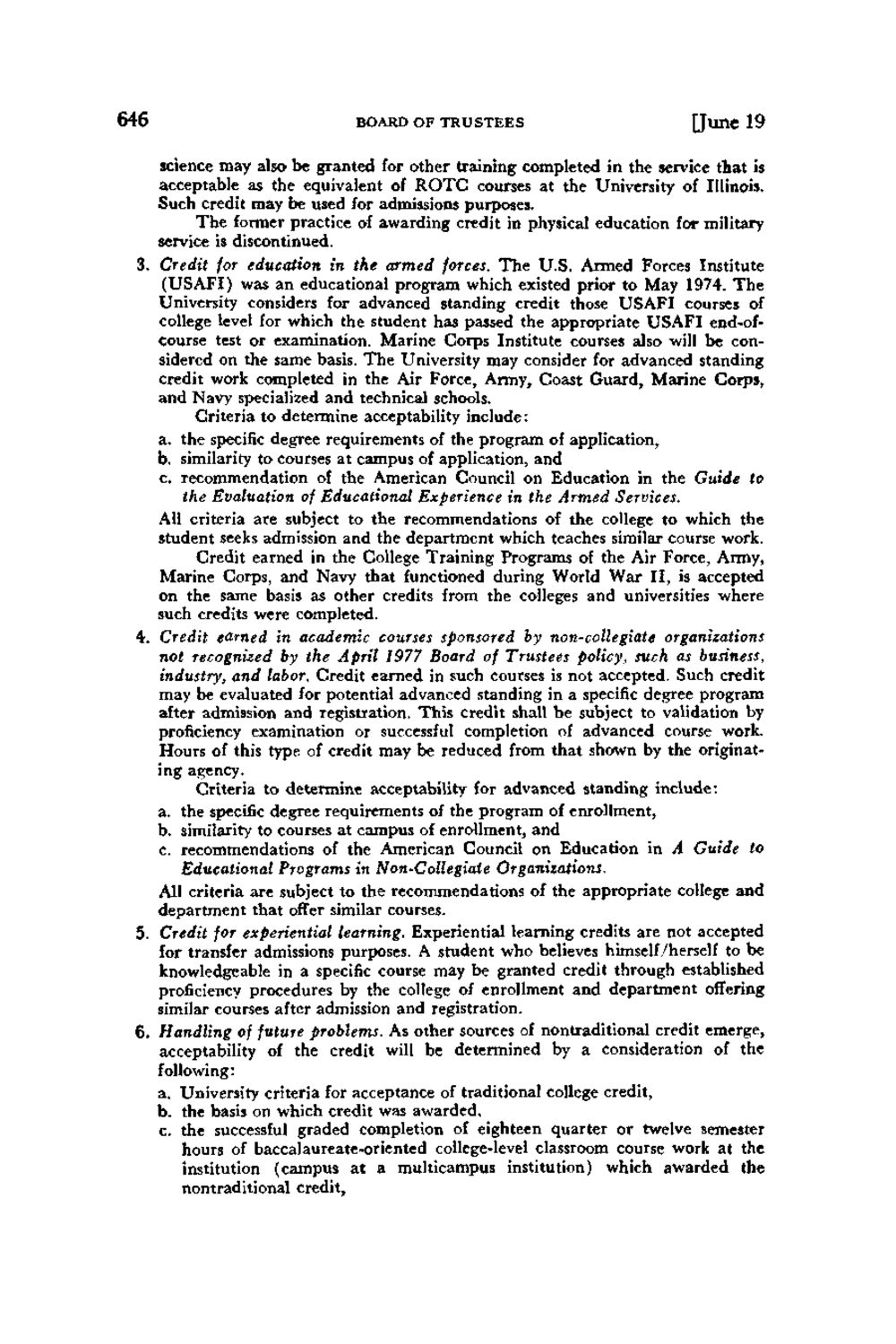| |
| |
Caption: Board of Trustees Minutes - 1980
This is a reduced-resolution page image for fast online browsing.

EXTRACTED TEXT FROM PAGE:
646 BOARD OF T R U S T E E S [June 19 3. 4. 5. 6. science may also be granted for other training completed in the service that is acceptable as the equivalent of R O T C courses at the University of Illinois. Such credit may be used for admissions purposes. T h e former practice of awarding credit in physical education for military service is discontinued. Credit for education in the armed forces. T h e U.S. Armed Forces Institute (USAFI) was an educational program which existed prior to May 1974. T h e University considers for advanced standing credit those USAFI courses of college level for which the student has passed the appropriate USAFI end-ofcourse test or examination. Marine Corps Institute courses also will be considered on the same basis. The University may consider for advanced standing credit work completed in the Air Force, Army, Coast Guard, Marine Corps, and Navy specialized and technical schools. Criteria to determine acceptability include: a. the specific degree requirements of the program of application, b. similarity to courses at campus of application, and c. recommendation of the American Council on Education in the Guide to the Evaluation of Educational Experience in the Armed Services. All criteria are subject to the recommendations of the college to which the student seeks admission and the department which teaches similar course work. Credit earned in the College Training Programs of the Air Force, Army, Marine Corps, and Navy that functioned during World War I I , is accepted on the same basis as other credits from the colleges and universities where such credits were completed. Credit earned in academic courses sponsored by non-collegiate organizations not recognized by the April 1977 Board of Trustees policy, such as business, industry, and labor. Credit earned in such courses is not accepted. Such credit may be evaluated for potential advanced standing in a specific degree program after admission and registration. This credit shall be subject to validation by proficiency examination or successful completion of advanced course work. Hours of this type, of credit may be reduced from that shown by the originating agency. Criteria to determine acceptability for advanced standing include: a. the specific degree requirements of the program of enrollment, b. similarity to courses at campus of enrollment, and c. recommendations of the American Council on Education in A Guide to Educational Programs in Non-Collegiate Organizations. All criteria are subject to the recommendations of the appropriate college and department that offer similar courses. Credit for experiential learning. Experiential learning credits are not accepted for transfer admissions purposes. A student who believes himself/herself to be knowledgeable in a specific course may be granted credit through established proficiency procedures by the college of enrollment and department offering similar courses after admission and registration. Handling of future problems. As other sources of nontraditional credit emerge, acceptability of the credit will be determined by a consideration of the following: a. University criteria for acceptance of traditional college credit, b. the basis on which credit was awarded, c. the successful graded completion of eighteen quarter or twelve semester hours of baccalaureate-oriented college-level classroom course work at the institution (campus at a multicampus institution) which awarded the nontraditional credit,
| |